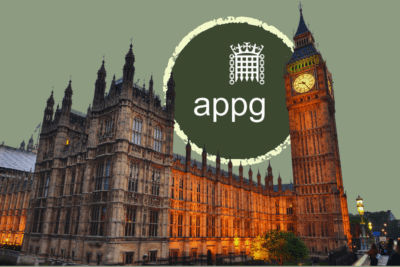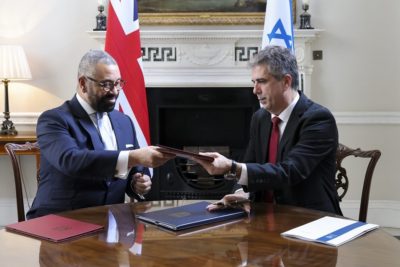Embedding the Covenant

This week (21-25 June) the Armed Forces Bill has been back in the Commons for debate. As with the Committee stage (which we report on here), none of the proposed amendments passed and the chance to make progressive change on a range of issues was lost. These include hearing cases involving the most serious offences in civilian courts, creating an Armed Forces Federation, and reparations for those who suffered historical and ongoing injustice as a result of the ban on homosexuality in the forces until the late 1990s (see notes).
Timed to coincide with Armed Forces Week, perhaps the government’s most far-reaching aim with the 2021 Bill is to further enshrine the Armed Forces Covenant in law, a decade after it was first put on the statute books. As a formal commitment or ‘pledge’ to support the armed forces community the Covenant already represents a significant change to civil-military relations in the UK.
For the last ten years the Defence Secretary has been legally required to report to Parliament annually on progress made supporting the armed forces community, largely in the areas of housing, education and health. The government have also used the Armed Forces Community and Corporate Covenant to enlist the support of local authorities, health bodies and many others providing local services and employment.
The 2021 Armed Forces Bill will take elements of the Covenant out of the voluntary realm and make it a legal duty for local bodies and service providers to have ‘due regard’ to the Covenant in the areas of housing, healthcare and education. In doing so, the government are taking the opportunity to consolidate social and political gains for the military created through the Covenant by securing it into law. What this means for local autonomy and finances has played little part in the discussion.
Since 2011, almost all local authorities in the UK (with the exception of some in Northern Ireland) have signed the Community Covenant and nearly 7000 business, charities and other organisations have signed the Corporate Covenant. There are associated programs such as the Defence Employer Recognition Scheme and the Armed Forces Covenant Fund. The Fund provides £10 million annually from the MoD for projects across the UK, with other funding coming from local sources. In addition to signing the Covenant, most local authorities also have an Armed Forces Champion and many have established civil-military partnership bodies.
Many people will only be aware of the existence of the Armed Forces Covenant through one of the events designed to garner support for the military, such as Armed Forces Day, and Week, #saluteourforces or Reserves Day. As well as initiatives to improve access to services for serving personnel, their families and veterans, schemes such as cadet forces and military ethos projects in schools, and the above-mentioned promotional and recruitment events have all been brought under the Covenant, and public and private bodies who have pledged to it are therefore expected to support.
Observing the Covenant in the wider context of a concerted effort to promote military interests helps understand how it benefits the institutions, culture and approaches of the armed forces, as well as certain individuals within them.
Over the last decade ForcesWatch have monitored the Covenant’s development, with particular focus on the subtle militarising push that it creates. Observing the Covenant in the wider context of a concerted effort to promote military interests helps understand how it benefits the institutions, culture and approaches of the armed forces, as well as certain individuals within them. Quakers in Britain describe the impact of ‘cultural militarism’ in their submission to the Armed Forces Bill Committee.
We are concerned that the bill is underpinned by and reinforces the assumption that war is inevitable rather than a political choice of a course of action….This may have a stifling effect on democratic discourse as society needs the freedom to question British military policy without fear of censure. The UK public are sceptical about war but highly supportive and compassionate towards the people in the armed forces. This is healthy, and the two should not be conflated.
The new legislation exacerbates these concerns, as outlined below and discussed in more detail in our parliamentary briefing. That the wording of the legislation is deliberately vague allows for some local flexibility but also means that the government can not be accused of being too prescriptive in its demands, or provide the necessary funding to fulfil them. Ever playing catch-up with regards to defence, the Labour Party have been very vocal in demanding that the new law is widened and more prescriptive. Statutory guidance relating to the legal duty is still only available in a very sketchy form, so local authorities and other bodies, including NHS trusts and school governors, must wait to discover the extent of their new obligations to the military and how this will be assessed and enforced.
The Covenant has allowed the government to devolve much of the burden of caring for the armed forces community and to harness public and private organisations in this mission.
Shifting responsibility
The Covenant shifts a fair amount of moral and financial responsibility for issues relating to service in the armed forces from central government to local bodies. It has allowed the government to devolve much of the burden and to harness public and private organisations in this mission. The proposed legislation goes further by giving local bodies new legal duties which do not apply to government departments, notably the MoD. As pointed out by witnesses to the Committee scrutinising the legislation, including the British Legion, many of the issues affecting the armed forces community are outside the scope of bodies working at a local level. This was reiterated many times in the Commons debate, with particular reference to the overall poor standard of armed forces accommodation despite a long-term programme of renewal. Other issues of concern, such as pensions and the impact of transition out of the forces, are the responsibility of national government.
The Covenant has already put a financial burden on local authorities and this could increase significantly with the new legislation. All local authority associations have expressed concern about the likely financial implications, and how over-stretched local budgets will be able to accommodate increasing demands from this one sector.
This promotional element is beyond what should reasonably be expected from non-military public bodies, including schools and universities.
Promoting the military
The Covenant extends beyond reducing disadvantage for individuals to the promotion of the armed forces more generally. This promotional element is beyond what should reasonably be expected from non-military public bodies, including schools and universities. Educational organisations charged with exploring issues from a balanced and non-political perspective, risk uncritically promoting military institutions and approaches without the degree of balanced examination required.
Pledges to promote general support for the armed forces are also an additional claim on resources that organisations can ill afford and falls outside of their core remit. Any factoring in of the particular needs of different sectors of the community should be balanced with duties under equality, and other relevant, legislation.
A conflict with human rights and equality legislation
While recognising that the Covenant seeks to address issues of access to services and opportunities for the armed forces community, it also raises its own equality concerns. The principle of service provision based on need must be maintained in order to fairly balance the demands of different parts of the community, and to avoid conflict with existing equalities and other legislation.
Communities challenging their local authorities on the presence of recruitment stalls with weapons and military hardware in public places have found that the Covenant has changed the context within which local decisions about the interaction of the armed forces with children and young people at events and in schools are made. Despite the Covenant requiring that the armed forces are treated with special consideration in some circumstances because of the uniquely demanding nature of the careers, the image of military life continues to be sanitised in recruitment marketing and at public events; this masks the impact of conflict and the harms that can be associated with an armed forces career, and reduces the space for healthy debate about military approaches.
Overriding local autonomy
The legislation will also include powers for the Defence Secretary to widen the bodies and functions covered under the Covenant. This could see the legal duty to show ‘due regard’ extend into less easily defined service areas, with providers and employers affected by new legal obligations to support the armed forces outside of their core remit. Will local communities one day also be legally required to promote the armed forces? It is certainly likely that will feel further obliged to put additional resources into services for the armed forces community and into events and other shows of support for fear of contravening their statutory duty.
The push to create a unified show of support for the armed forces under the Covenant overrides community sentiment and experience about the impact of conflict.
The legislation undermines local autonomy and community cohesiveness. This is a particularly important issue in Northern Ireland where the political landscape is a key factor. Requiring local authorities to observe the Covenant by law in this case is insensitive to the history of the relationship of the area to the British Army and risks inflaming tensions.
The push to create a unified show of support for the armed forces under the Covenant is also of wider concern, as it overrides community sentiment and experience about the impact of conflict. This is particularly important in relation to encouraging public shows of support for the armed forces. Military action is a highly political and divisive activity, and the spectrum of opinion on the armed forces must be respected, particularly where significant parts of the community have personal experience of the damage caused by military conflict elsewhere in the world.
Read our parliamentary briefing on the Armed Forces Covenant.
Notes
The amendment to ensure that allegations of the most serious offences – murder, manslaughter, rape and child abuse – by serving personnel would be tried in civilian courts because of investigative failures within the military police, was not passed. The case for this change was made this week by Des James, who has been fighting to justice for his daughter Cheryl James who, aged just 18, died at Deepcut Barracks in 1995. Adopting this amendment would also mean that allegations of abuse at Army Foundation College in Harrogate (AFCH), the training establishment for army recruits aged under 18, would be tried outside the military justice system. In 2018, a court martial hearing multiple cases of abuse at AFCH collapsed because of investigative failings.
Labour and SNP joined forces to put forward an amendment to create an Armed Forces Federation to represent serving personnel ‘in all matters affecting their welfare, renumeration and efficiency’. While the Minister stated that, ‘The Government have not been persuaded at this point that there is a requirement or a groundswell of support for a federation’, the amendment looks set to return at the next stage of the Bill’s progress through Parliament.
Labour’s Dan Carden put forward an amendment to require the government to conduct a review of the number of people dismissed or forces to resign from the armed forces due to their sexuality and to make recommendations on appropriate forms of compensation. His speech gave details of some of the terrible injustices suffered before the ban on homosexuality in the military was lifted in the late 1990s, and continue to suffer.
There was considerable support an amendment to waive fees for Commonwealth and Ghurka veterans applying for indefinite leave to remain (link). The government argued that they are now consulting on how this could be dealt with, and will report in July, and as a result the amendment did not pass.
See more: military in society, Armed Forces Bill, Armed Forces Covenant, Armed Forces Day
Like what you read?
> Sign up for our newsletter or blog notifications
> Support our work – from just £2 a month










